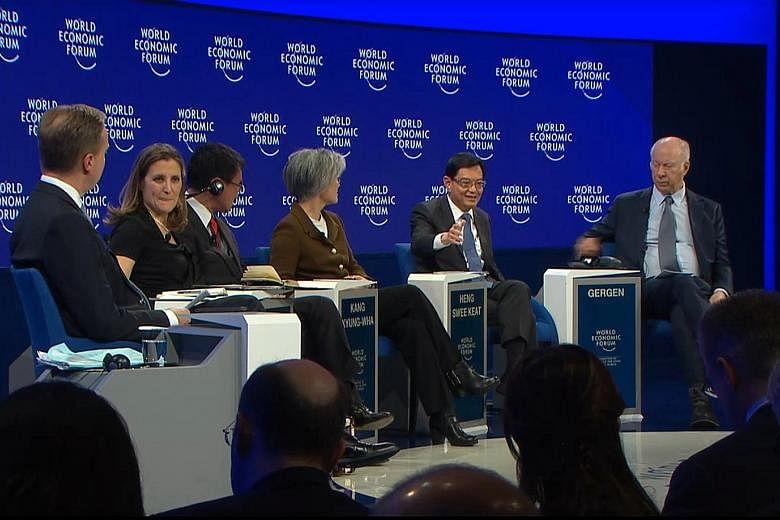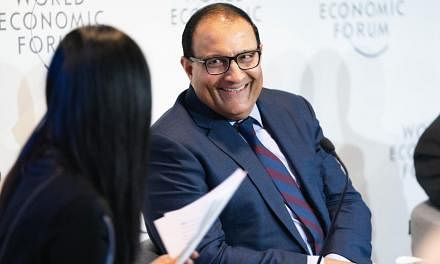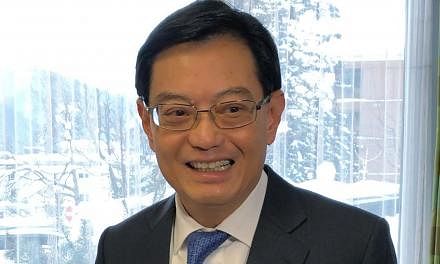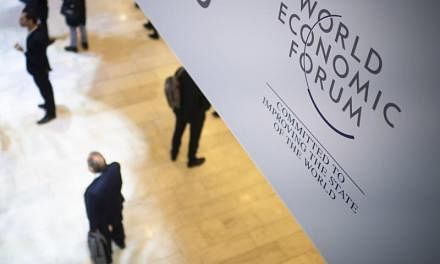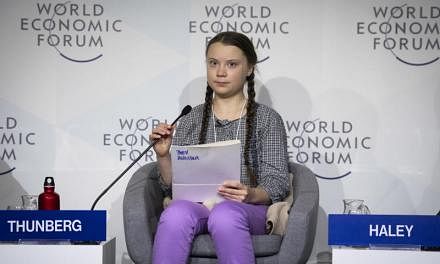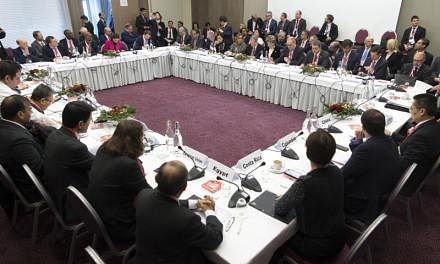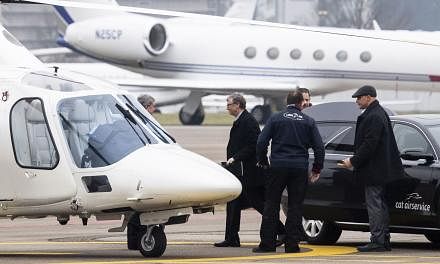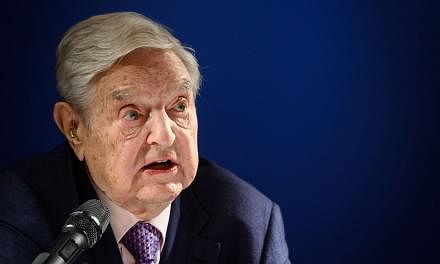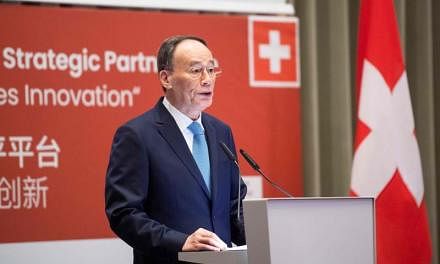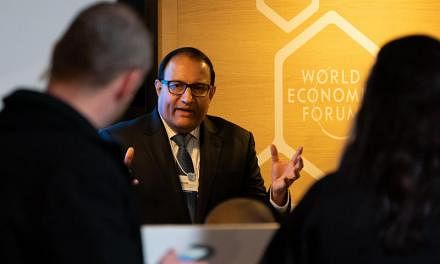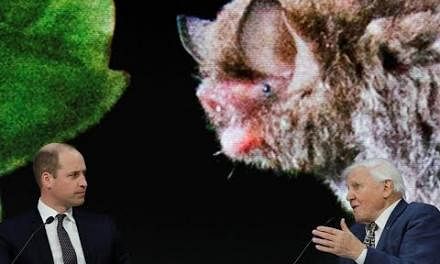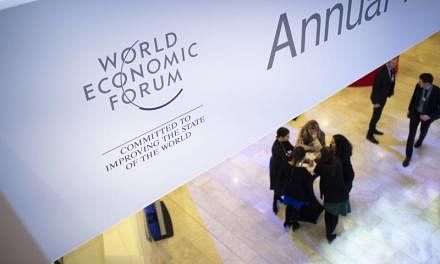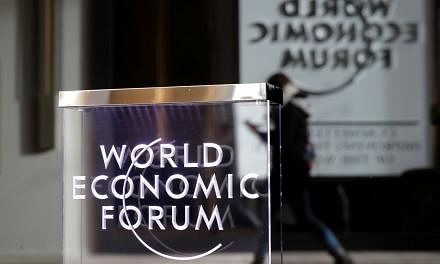The globalised world order needs countries to seek peace and stability, help each other prosper and improve the quality of their people's lives, Finance Minister Heng Swee Keat said at the World Economic Forum (WEF) in Davos yesterday.
These three goals for the global community will help countries achieve a common understanding and avoid wars, like the two world wars in the 20th century, Mr Heng said at a panel discussion on the geopolitical outlook.
He viewed peace and stability as the top priority, saying: "War is something we should never repeat."
His view was shared by fellow panellist, South Korea's Foreign Minister Kang Kyung-wha, who said there is a need to make greater strides towards denuclearisation, adding that the upcoming summit between the American and North Korean leaders will have to deliver concrete results.
Mr Heng also stressed that global free trade plays a key part in bringing prosperity to the world and lifting people's standard of living, in response to a question on the impact of trade and geopolitics on the global economy that was posed by the panel's moderator Borge Brende, who is the WEF president and the former foreign minister of Norway.
Mr Heng said: "A multilateral, rules-based free trade system has brought prosperity to the whole world in the 20th century."
He added that a major part of it occurred in China, after supreme leader Deng Xiaoping opened up the country.
"Opening up was a way to inject external pressure to stimulate reform domestically," he said, adding that as a result, every country aspired to climb higher on the value chain, with those on the highest end having to climb even faster.
Technology will be a key enabler for countries to restructure their economies so everyone can move up that chain together, he added.
In underlining the need for nations to ensure quality of life for their people, he said this includes taking care of the environment. "The global community needs to come together to address a number of challenges and protect our global commons," he added.
Another panellist, Canada's Foreign Minister Chrystia Freeland, likened the rules-based world order to how a gardener tends to his garden while fending off a growing jungle. "We are starting to figure out how to navigate this new world and ways for the rules-based international order to fight back."
On the United States-China trade conflict, Mr Heng expressed the hope that there will be an agreement between the two giants because the stakes are very high for the rest of the world as well.
The effects of their conflict are impacting global growth, with the International Monetary Fund cutting its forecast to 3.5 per cent for this year and 3.6 per cent for next year.
Their tariffs have also affected the global supply chain, he added.
"The global supply chain is so integrated that any form of change and disruption is going to bring very severe disruption," he said, citing chief executives at the forum.
Referring to how the trade tension, coupled with China's rising wages, had started moving the supply chain into countries south of China, including Vietnam and Cambodia, Mr Heng said: "There will be a reconfiguration of the supply chain, but I hope we can do it in a steady way."
While trade is important, technological superiority and the governance model are also vital in bringing about a better quality of life for people, said Mr Heng.
He noted that more than 30 years ago, founding prime minister Lee Kuan Yew predicted that as China's economy increases its weight in the global economy, there will be increasing tensions with the US.
"But the strategic competition that will take place is one thing. It is important for us to ensure that it does not result in strategic conflict because that will be quite a major problem for all of us."
He added: "I hope we can reach some understanding on that issue."
He went on to cite a metaphor he heard at an earlier session: "Imagine if all of us were on a plane and the pilot and co-pilot are fighting.
"I thought it was an interesting metaphor, but I hope that beyond the two pilots, we also have some autopilot that the rest of us can (rest our) hope on."
Professor David R. Gergen, founding director of Harvard University's Centre for Public Leadership, called on leaders to start preparing for the day when Mr Donald Trump is no longer president because the discontent and issues that brought him to power will still be there, and they pose a threat to democracy.
Japan's Foreign Minister Taro Kono suggested using technology to hear directly from voters as a way to overcome their discontent.
He said: "We have to trust the voters, give them power to make decisions and that they have to be responsible for what is decided.''
